
A group of Texas Woman’s University students — and one Pioneer employee — share a passion for the beloved tabletop role-playing game Dungeons & Dragons that has turned into a serious business.
Students Cody Leveck, Roman Musico and Villi Massey and TWU marketing staffer Andres Palos gathered around a table on the second floor of the Blagg-Huey Library earlier this month. It’s the “quiet floor,” and they’ve reserved a conference room.
“About half of the company is in this room,” said Leveck, a freshman.
When he says “the company,” he means Lamplighter Games, a fledgling game developer based on the TWU campus.
None of the founders are business majors. In fact, all of them are undergraduates seeking decidedly non-business degrees. Leveck is studying musical theater, Musico is an English major and Massey is a general studies major who is focusing on creative writing.
When they gather around tables and screens as a development team, Leveck is the team manager, administrator and public liaison, Musico is the creative writer, Massey holds down the logistics and systems management. The rest of the team includes an artist and a writer who creates the history and culture of the game’s universe. Writers also create the environment, down to the plants and animal life.
“I guess we can blame me,” Leveck said.
The idea for the development company started around a table in the TWU Bunsen Tea Lab in the student union. Leveck and a classmate and co-founder, Ari Costulis, struck up a conversation about Dungeons & Dragons, the role-playing game that popularized and revolutionized role-playing and war-gaming that started to spread in the 1970s.
D&D was the first commercially available tabletop role-playing game. For the uninitiated, D&D is a game that uses world-building books and a “Dungeon Master” to launch a gaming campaign. Players gather around a table, create characters devised and dictated by the origin books, and go on missions, often called “campaigns,” that can last as long as several years. Players embark on a sword and sorcery-style fantasy game, scheming to overcomer obstacles, fighting battles, and often dying, only to create new characters.
D&D owes its enduring popularity to the many ways it plugs into nerd culture. Each session encourages players to use their imaginations, the rules and loopholes of the game structure, and tons of improvisation to do things like kill giants or poison a tree full of evil fairies on a quest to save a village and win treasure. But D&D can appeal to hobbyists with money to spend on merchandise like models and figures, fancy dice and accessories, or players can simply grab a legal pad, a set of pencils and play for years.
For decades, D&D players have been clerics, mages, bards and warlocks, to name a few.
“I think it is really a great excuse to steal your friends and sit in a place where I, as a [Dungeon Master], get to invite you into my little brain, my little world I’ve created,” Leveck said, describing Dungeons & Dragons. “And you, as a player, get to build your own story, tell your own tale, and connect with your peers on a level that is intimate and that is kind of exposing yourself just a little bit. And I think there’s such a beauty in the connection that a D&D party makes.”
During his conversation with Costulis, Leveck said inspiration struck: He thought of a D&D based on a cave system.
“That same day, I walked over to the dining hall and I had met a few people, mainly Villi and Ro, about three days prior at the local D&D club, the Pioneers Guild,” Leveck said. “I saw them in the lunchroom, and I go, ‘Oh, hey, these people are [Dungeon Masters]. I can get them to jump on board for me.’”
Leveck asked them to join a collaborative campaign — a D&D campaign they would create together.
“I think the rest of it is history,” Leveck said. “From that moment, we started regularly meeting up in the library, messaging each other on Discord and, fast-forwarding about a year and a half, we have expanded from the original four to 10.”
Musico said using the framework of the fifth edition of D&D, where a game master runs the non-player characters and the story, was a way to free Lamplighter’s team to invent its own game.
“We’re four storytellers who are using a framework that we really like,” he said. “But if I think about the format, it was that we started complaining about something in D&D we didn’t like. We were like, ‘Yeah, we have our own ideas. Let’s talk about our own ideas.’ And as we started sharing more and more, we started to make something that more and more us.”
And that cave system Leveck suggested to Costulis? It became the universe for the inaugural Lamplighter Games endeavor: Luxumbra.
The title, translated from Latin, means light in the darkness.
In the game, players will create characters and journey through a subterranean world, meeting monsters and solving problems as they move from place to place in the cave system. The creative work is deep, and the goal for now is to create and publish a compendium of books that game masters will use to run campaigns.
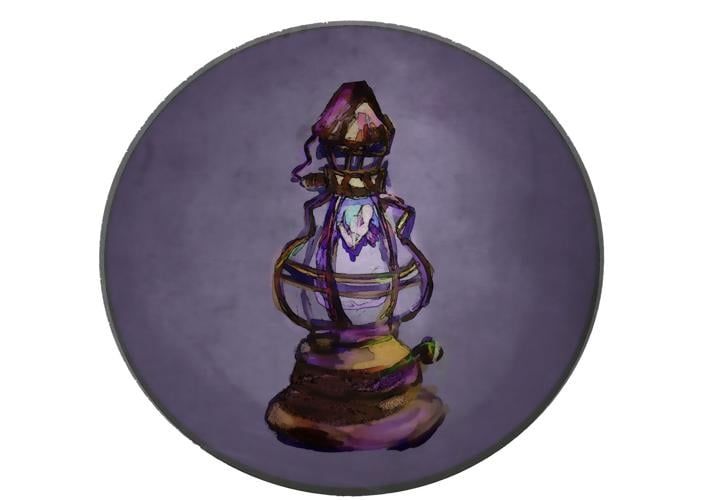
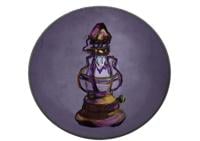
The logo for Lamplighter Games, a company founded by current undergraduate students at TWU.
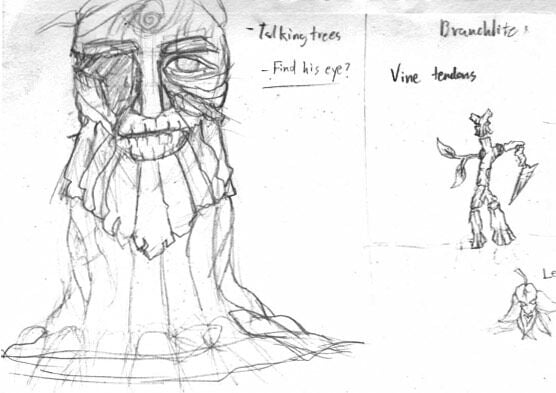
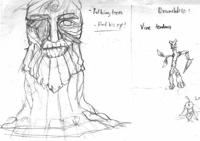
A sample of a character concept from Luxumbra, a tabletop, role-playing game in development by TWU undergraduate students. You might see traces of J.R.R. Tolkien’s Ent characters in this creature.

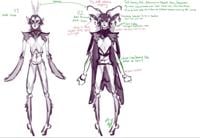
A sample of a character concepts from Luxumbra, a tabletop role-playing game in development by TWU undergraduate students.
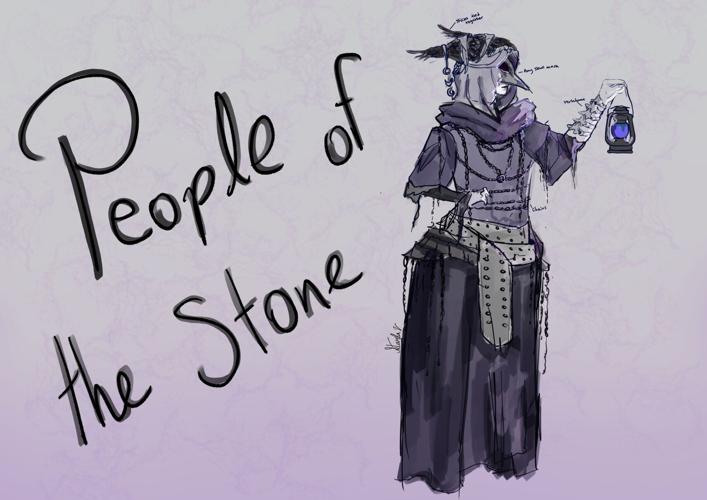
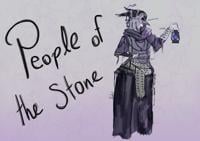
A sample of a character concept from Luxumbra, a tabletop role-playing game in development by TWU undergraduate students.

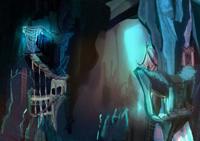
A sample of a setting from Luxumbra, a tabletop, role-playing game being created by Lamplighter Games, a company founded by current undergraduate students at TWU.

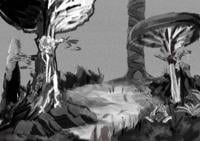
An example of a biome in a system of caverns that is the setting and universe of Luxumbra, a tabletop role-playing game being created by Lamplighter Games.
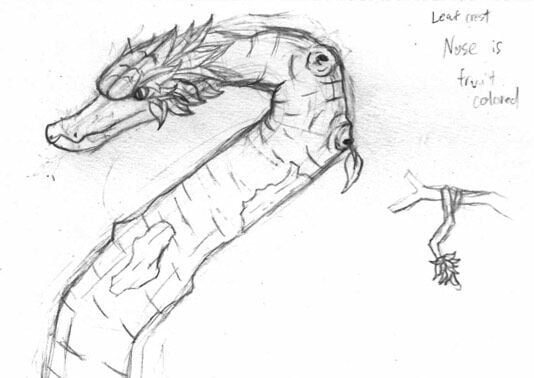
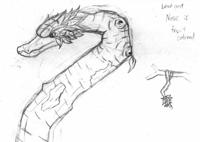
Lamplighter Games, a company started by TWU students, shared a sneak peek of characters and scenes from its inaugural tabletop role-playing game, Luxumbra. The game is expected to be released in about a year after testing.
“In D&D, there is a specific setting in game called the Underdark, and it’s supposed to be this dark fantasy area, with these deep caverns that you are able to explore,” Musico said. “It’s a literal underworld where, you know, the darkest people of society live, in the darkest reaches, and we’re like, ‘This is a really underserved location.’ The mechanics of D&D don’t really serve this place to tell the story that we want it to.”
Luxumbra will flesh out an underdark, Musico said, which is a subterranean world in one of D&D’s settings.
“We saw that and we immediately went, ‘Well, what if we could make it more interesting?’” Leveck said. “What if we could make a setting that takes heart of what the Underdark was, but changes it fundamentally to be more intriguing environmentally? That is what originally started this process.”
Palos said he’s the new kid on the block, joining the students from his post as a TWU marketing staffer. He’s been working with the team for three or four months, he said. And like everyone else on the team, he’s been a Dungeon Master.
“Something that I’ve noticed immediately, when I met the team, is that everyone is very passionate at one thing,” he said. “You have to be when you’re a DM, or you’re going to need to be passionate about the game, because it’s basically homework when you’re doing this. And so, slowly, bit by bit, I’ve noticed that Cody will find people who are just as passionate. And honestly, that’s what the team became.
“It’s just a team of a lot of passionate people who want to create something fun for other teams.”
The team talks about the game’s logistics a lot. They dissect the characters and their cultures, and debate the details of each of the cities or villages that have settled around generators, which are domes of light, in Luxumbra.
There is so much talking, the team members said. But there are also illustrations, courtesy of visual artist and TWU student Starla VanDenberg, a member of the team. They’ve sketched characters, their clothing and their economies.
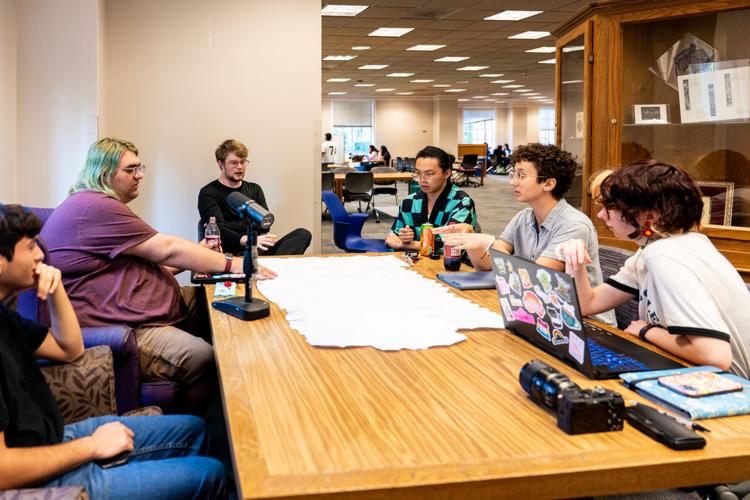

From left, DeJae Monroy, Villi Massey, Cody Leveck, Van Bui, Ari Costulis and Starla VanDenberg are part of a group of TWU students who formed a company, Lamplighter Games, that is at work on a tabletop role-playing gamed called Luxumbra. The group also includes Hayden Clifton and Eris Sanderson, not pictured.


From left, Ari Costulis, Cody Leveck and Van Bui discuss the tabletop role-playing game they are creating, Luxumbra.


Texas Woman’s University students have turned their passion for Dungeons & Dragons into a business. Lamplighter Games is developing a tabletop role-playing game set in a universe of caves. From left, Villi Massey, Cody Leveck, Roman Musico, Van Bui and Ari Costuli discuss their inaugural game, Luxumbra, on Friday.


Texas Woman’s University students have turned their passion for Dungeons & Dragons into a business. Lamplighter Games is developing a tabletop role-playing game that will send players through a universe of caves, and chances to find and harness light sources in Luxumbra, the universe and the title of the game.
From left, DeJae Monroy, Villi Massey, Cody Leveck, Van Bui, Ari Costulis and Starla VanDenberg are part of a group of TWU students who formed a company, Lamplighter Games, that is at work on a tabletop role-playing gamed called Luxumbra. The group also includes Hayden Clifton and Eris Sanderson, not pictured.
Texas Woman’s University students have turned their passion for Dungeons & Dragons into a business. Lamplighter Games is developing a tabletop role-playing game set in a universe of caves. From left, Villi Massey, Cody Leveck, Roman Musico, Van Bui and Ari Costuli discuss their inaugural game, Luxumbra, on Friday.
Texas Woman’s University students have turned their passion for Dungeons & Dragons into a business. Lamplighter Games is developing a tabletop role-playing game that will send players through a universe of caves, and chances to find and harness light sources in Luxumbra, the universe and the title of the game.
One thing that’s for certain is that Luxumbra is meant to make players appreciate traveling between the underground biomes. The biomes will borrow from the natural world, using things like bioluminescence and cribbing ideas from other properties, like the lush caves found in Minecraft.
Massey said the compendium of books will be versatile.
“I think the goal is that, if you want to really play everything by the book, a game master can do that,” she said. “But if a party feels like making more of the decisions, and the game master wants to give that space, you can do that, too. The goal is for people to build their own communities around the game, which is a big part of the appeal of role-playing games as it is.”
The team is working toward becoming an limited liability corporation, and Leveck said he’s been meeting and talking to people, casting a net for investors and future game masters and players.
Leveck said it could take another year to finish development of Luxumbra, but the team is dedicated, and Massey and Leveck are keeping members on task. Palos is creating content for the company’s brand-new YouTube channel, and the company has just set up its Instagram.
“We have a lot of work ahead of us,” Leveck said. “But everyone is really passionate about seeing this through.”
